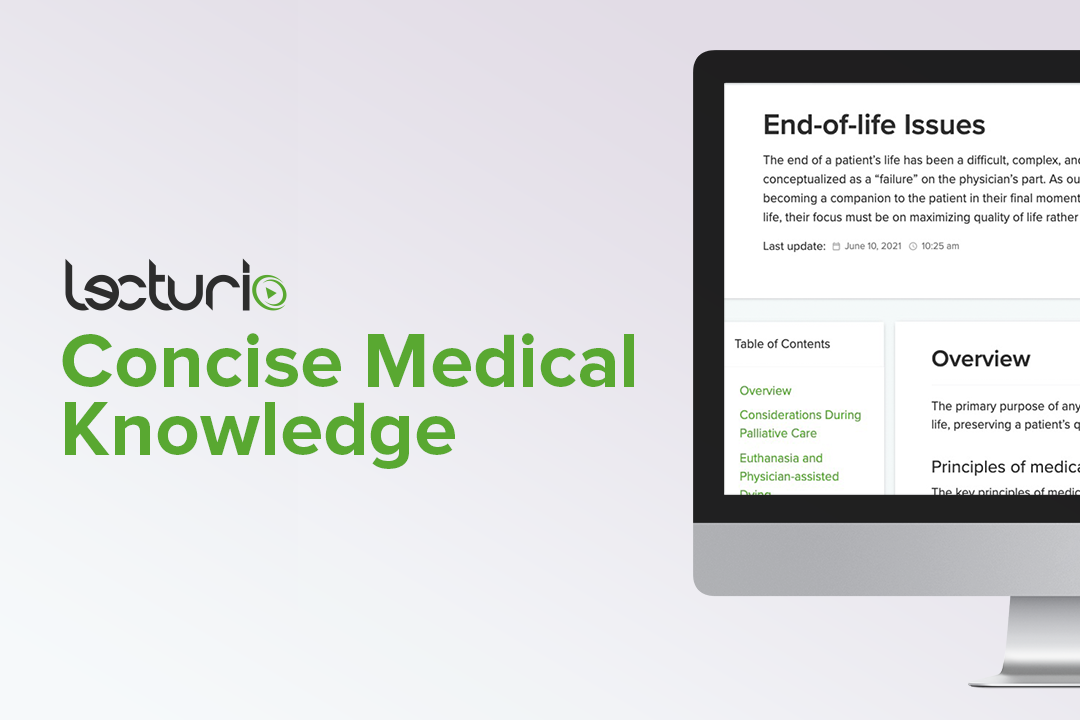Playlist
Show Playlist
Hide Playlist
Discussing Goals of Care: When
-
Slides Discussing Goals of Care When.pdf
-
Download Lecture Overview
00:01 So, when should these be, when done? When should you have these conversations? I think it's an opportunity really to do it periodically with the patient. 00:10 If you're in a long standing therapeutic relationship with a patient, you can check in with them periodically, especially as things come up in their health condition, to talk about these things, put it in the situation of their life, and know how they would want to handle things. 00:29 Now, it may be that there are changes in prognosis. 00:32 So a patient that's now facing a more serious illness. 00:38 The possibility that they might die of that illness, this is an opportunity to really focus on what's important to you, in terms of burdensome symptoms, in terms of religious beliefs, in terms of functionality that are going to be important. 00:52 Now, we know what your prognosis is. 00:55 And then lastly, it's also an opportunity when there's been a response to treatment. 00:59 So if they you've instituted a treatment, and you say, "Okay, this is how the treatment worked for you. 01:06 Now, how does this factor into your goals of care. 01:14 So, various ways that you can think about the When of goals of care. 01:19 It could be part of routine preventive health. 01:21 As I said, sort of this advanced care planning aspect. 01:25 It could be anytime there's a change in the patient's condition. 01:28 So maybe they've had a hospitalization now you're seeing him in the outpatient setting? You want to check in with them, you know. 01:35 How did that hospitalization go for you? Was there anything good or bad about it that we should know about for any kind of time, you might need to be in the hospital in the future? Has an acute illness changed their functional status? So now that they have to adjust in certain ways to different levels of function. 01:55 How does that inform their goals of care? There may be times where there's treatments that have really low probability of success or might have increased risk of harm. 02:06 So you're really worried that the benefit and burden ratio is either uncertain or might be more burdensome than beneficial. 02:16 And there's an opportunity to sit or talk to the patient. 02:19 How do you feel about that uncertainty or that that low probability of success? Should we pursue it or not? Knowing what the consequences might be. 02:31 Maybe the patient has had experiences in their life that helped to inform how they would think about their own treatment decisions. 02:41 Maybe they've had a loved one who's had a serious illness or a death of a loved one. 02:46 And they had to be the decision maker for that person. 02:50 Does that help them figure out what they would do in their own circumstance, if they had such a condition? And then lastly, especially when we're thinking about more end of life decision making, the goals of care could be for any patient, where you're in sort of anticipating they might die in the next six to 12 months. 03:13 This is you know, again, thinking about the prognosis. 03:16 Would they refocus or shift their goals in light of that prognosis? So, knowing that they are nearing the end of life, What are their priorities and their preferences at that point?
About the Lecture
The lecture Discussing Goals of Care: When by Mark Hughes, MD, MA is from the course Breaking Serious News and Advance Care Planning.
Included Quiz Questions
What is NOT a situation that should prompt a goals of care discussion?
- Change in the cost of a medication
- Change in prognosis
- Diagnosis of a serious medical condition
- Change in patient's response to treatment
What is an example of a time for a goals of care discussion?
- Recent experience causing the patient to think about their hopes and fears
- One-time blood pressure reading of 155/89
- After missing a dose of atorvastatin
- After successful treatment of a hemorrhoid
Customer reviews
5,0 of 5 stars
| 5 Stars |
|
5 |
| 4 Stars |
|
0 |
| 3 Stars |
|
0 |
| 2 Stars |
|
0 |
| 1 Star |
|
0 |





